A Science|Business Healthy Measures Open Conference, 09:30 - 17:30, Barcelona
What if we could determine a baby’s risk of cancer or Alzheimer’s disease later in life, by studying their DNA? And what if we could print at home the drug to treat a specific disorder? It might look a bit like science fiction right now, but it’s what personalised medicine could achieve in the coming years.
The new era of targeted treatment could lead to finer diagnoses, tailored medical prescriptions, custom-made disease monitoring and reduced care costs. What can hospitals start doing today to bring it closer to reality? How can research centres and universities help?
A great deal of personalised medicine’s success depends on our ability to retrieve and share patient data, in particular from medical monitoring devices but also satisfaction surveys. Two words to describe this approach: Patient outcomes.
Using these records, organisations such as the WHO and the OECD, in cooperation with the European Commission, develop comparisons across countries on who gets the best value for money, and who the best outcomes.
Now, back to reality in 2018: how to collect this data, compare (real) performances across health systems and take a step forward toward personalised medicine – and enter the next era of health care systems?
But the accompanying challenge for European member states with universal healthcare coverage is how to find value with limited financial resources; how to make public health systems sustainable.
So, delving deeper into the future of health, value-based healthcare is a challenging question. If health systems became “value-based”, care providers would be paid based on patient health outcomes. This means that hospitals and physicians are rewarded for helping patients improve their health, reduce the effects of chronic diseases and help patients live healthier lives.
Personalised medicine and value-based healthcare are closely connected concerns and the use of patient outcomes is crucial to the development of the value-based approach: In order to know whether a drug is effective, what better way to monitor patients’ recovery than by collecting their opinions?
Besides, the value-based approach would give incentives to companies to develop personalised medicine solutions such as tailored drugs, diet and exercise outcomes monitoring and telemedicine services - improving disease prevention and earning lots of healthy years for the whole population.
Barcelona is among the trailblazers in the healthcare revolution, being home to the third most powerful supercomputer in Europe: the MareNostrum 4, hosted by Barcelona Supercomputing Centre. Machines like the MareNostrum 4 are essential to achieve personalised medicine as they are capable of analysing large amounts of data, such as medical records, imagery, genomic and rare diseases traces – helping biomedicine advance to the next level.
This event will be a unique opportunity for a high-level debate on value-based health care, personalised medicine and patient outcomes in Barcelona, which are still matters under discussion in Spain.
Science|Business will organise a conference on 19 September 2018 at the Hospital St. Joan de Déu, Barcelona, to elevate the issue of value-based healthcare.
The conference will take place in english, however, spanish translation will be available.
- Co-organised with the Barcelona Supercomputing Centre and Hospital St. Joan de Déu, members of the Healthy Measures initiative, and supported by the Col•legi de Metges de Barcelona.

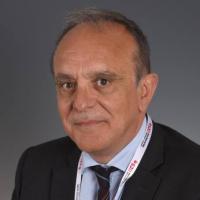









09:30 – Registration
10:00 – Welcome words:
- Manel del Castillo Rey, Chief Executive Officer, Hospital St. Joan de Déu Barcelona
- Mateo Valero Cortés, Director, Barcelona Supercomputing Center
- Marc Soler Fàbregas , Director General Corporatiu, Col·legi de Metges de Barcelona (CoMB)
- Alba Vergés i Bosch, Counsellor for Health, Generalitat of Catalonia
10:20 – Opening addresses:
- Patricia Lacruz Gimeno, Director General of Basic Services, National Health System and Pharmacy
- Xavier Prats Monné, Director General for Health and Food Safety, European Commission
11:00 – Can digital transformation and high performance computing help personalized medicine?
High performance computing, artificial intelligence, digital transformation of health and integrated care policies, in particular in silico medicine, combined with personalised medicine will revolutionise and add value to healthcare in the very next future.
- Alfonso Valencia, Professor; Director, Life Sciences Department, Barcelona Supercomputing Center
- Violeta Perez-Nueno, Programme Officer and Research Coordination, eHealth, Well-being and Ageing Unit, Directorate-General for Communications Networks, Content and Technology, European Commission
12:00 – Coffee Break
12:15 – Patient Outcomes as the driver for better healthcare
A substantial change for many physicians and other healthcare professionals – to focus on outcomes to measure value and by making better use of health data to improve the health of the EU citizens and reduce healthcare costs.
- Santiago Rabanal Retolaza, Director, Cruces University Hospital, Osakidetza, Basque Country
- Matthew Billingsley, Director, Strategic Communication and Knowledge Management, ICHOM
- Gustavo A. Tolchinsky Wiesen, Secretary, Internal Medicine, Col·legi de Metges de Barcelona (CoMB)
13:45 – Lunch
15:00 – Personalised Medicine, will broad access to patient data help achieve better outcomes?
Patient data as fuel for personalised medicine –to discuss the benefits - to patients, entrepreneurs, governments and society - of use of patient data for prescribing the right drugs for a patient, at the right doses, tailored for their specific genetic make-up for better outcomes while reducing costs.
- Anna García-Altés, Responsible of the Catalan Health System Observatory, Agency for Health Quality and Assessment of Catalonia (AQuAS)
- David Morrow, Programme Manager, Translational Medicine and Drug Development, EATRIS
16:00 - Healthcare Financing based on Value
A shift from fee-for-service to value-based care –to build the new Health Business Model on Patient Outcomes Measurements - in search of value in models of publicly-financed healthcare delivery.
- Henk Veeze, Founder and Medical Director, Diabeter, Center for Pediatric and Adolescent Diabetes Care and Research, Rotterdam
- Javier Colas Fustero, Director of Innovation, Healthcare Institute, ESADE ; Ex-President Medtronic Spain
16:45 – Conclusions: Paving the Way towards Outcomes-based Healthcare Systems
- Fina Lladós, General Manager, Amgen Spain
- Manel del Castillo Rey, Chief Executive Officer, Hospital St. Joan de Déu Barcelona
- Moderators: Monica Dietl, Senior Advisor and Simon Pickard, Network Director, Science|Business
Followed by a Networking drink
Venue: Auditorium, Edifici Docent building - Hospital Sant Joan de Déu Barcelona, Passeig de Sant Joan de Déu, 2, 08950 Esplugues de Llobregat, Barcelona, Spain
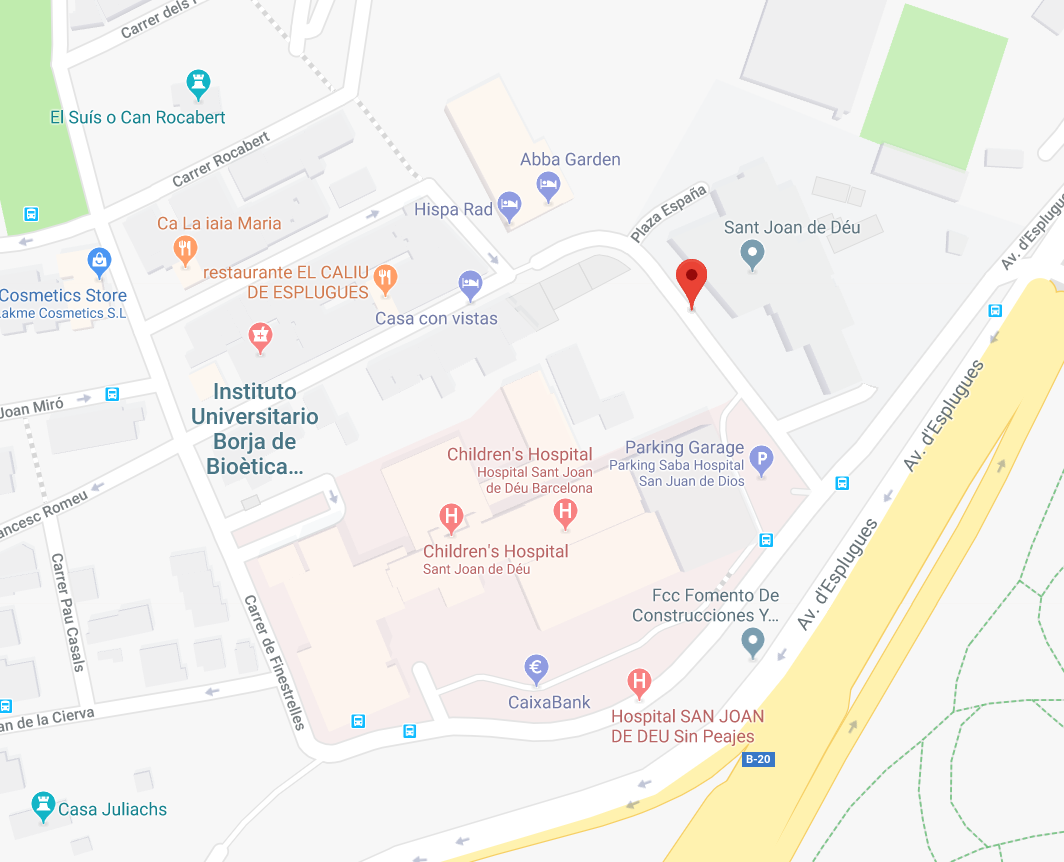
For more information regarding this event, please contact Lysiane Pons at [email protected]
Partners
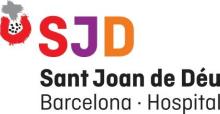


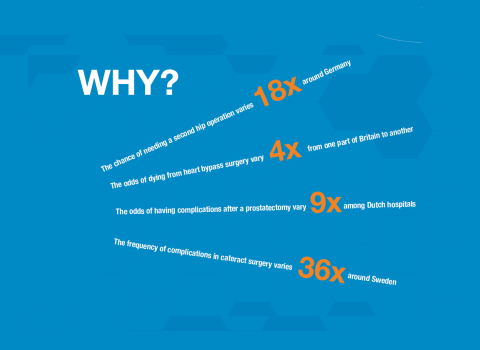
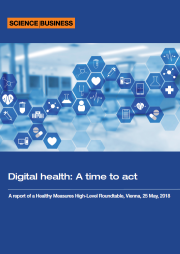

 A unique international forum for public research organisations and companies to connect their external engagement with strategic interests around their R&D system.
A unique international forum for public research organisations and companies to connect their external engagement with strategic interests around their R&D system.